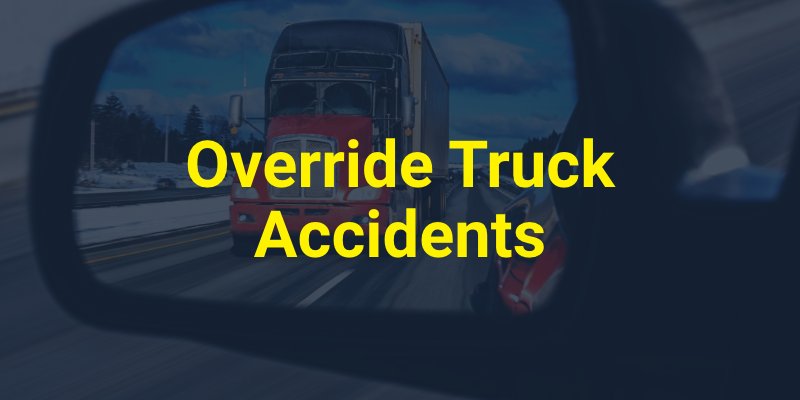Override truck accidents are a particularly hazardous type of collision involving large commercial trucks. In these incidents, a large truck rides over a smaller vehicle, often resulting in severe injuries or fatalities for the occupants of the smaller car. In these serious cases, our 18-wheeler truck accident attorneys can help with your claim.

Several factors can contribute to override truck accidents, many of which are preventable. Common causes include the following:
Understanding these causes is essential for implementing measures that can prevent override truck accidents and protect all road users.
Victims of truck accidents often sustain a range of serious injuries due to the sheer size and weight of commercial trucks. Some of the most common injuries include:
Each of these injuries can have devastating and long-lasting effects on the victim’s quality of life, making it imperative to seek immediate medical attention and competent legal representation following a truck accident.
Determining liability in an override truck accident can be a complex process, as there are multiple parties who may be responsible. Some of the potential liable parties include:
Identifying the appropriate liable parties is essential for ensuring that victims receive full compensation for their injuries and losses. Consulting with an experienced truck accident attorney in Phoenix can facilitate a thorough investigation and accurate determination of liability.
In Arizona, the statute of limitations for filing a truck accident lawsuit is generally two years from the date of the accident.
12-542. Injury to person; injury when death ensues; injury to property; conversion of property; forcible entry and forcible detainer; two year limitation
Except as provided in section 12-551 there shall be commenced and prosecuted within two years after the cause of action accrues, and not afterward, the following actions:
This means that victims have a limited timeframe within which they can initiate legal proceedings to seek compensation for their injuries and losses. It is crucial to adhere to this deadline, as failing to file a claim within the two-year window can result in the forfeiture of the right to pursue legal action.
It is also important to note that certain exceptions may apply, depending on the specifics of the case. For instance, if the accident involved a government entity, different rules and shorter time frames might be in place.
Consulting with an experienced attorney as soon as possible can help ensure that all legal requirements are met and that the victim’s rights are protected. If you need help, contact us today to schedule a free consultation.